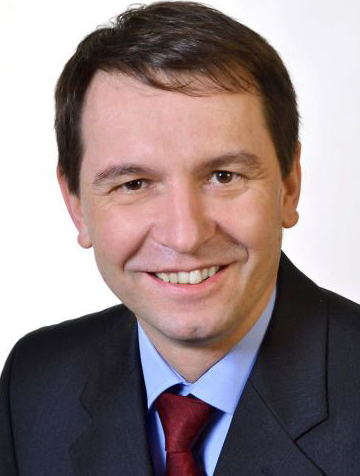Studying psychology opens up a wide range of professional opportunities. Working as a psychologist is possible in many professional fields, depending on the specialisation. In order to facilitate orientation, a selection of professional fields will be presented at this event. Psychologists from each SFU branch will present their fields of work and provide an insight into their everyday work. There will be first-hand information as well as space for exchange and questions. Language of presentation will be English.
- January 11th 2023, 6.00–7.30 pm
“Tasks and practice in psychiatry“
Dr. Markus Fischl | Psychiatrist, MD
Microsoft Teams meeting URL

Dr. Fischl is professionally active in the Social Psychiatric Outpatient Center and in the Psychiatric Outpatient Clinic of the Kepler University Hospital as a specialist in psychiatry. The Neuromed Campus of the Kepler University Hospital is home to the largest psychiatric unit in Austria. In addition to his professional profile, Dr. Fischl will also present figures, data and facts on psychiatric illnesses in Austria and discuss treatment options, both in the outpatient and inpatient areas.
Microsoft Teams meeting
Join on your computer, mobile app or room device
Click here to join the meeting
Lectures Series »Professional Fields and Practice of Psychology« organized by the Faculty of Psychology Vienna, Berlin, Linz, Ljubljana and Milan.
Preview lectures
January 18th 2023
Filipa Krolo, MSc | PhD Student at Universität Greifswald, Alumni of SFU
Lectures Series 11. Jan. 2023 (pdf)
Past lectures
December 7th 2022, 6.00–7.30 pm
Psychotherapy and Psychopharmacology towards a possible integration
Prof. Francesco Rovetto, MD; Professor of Clinical Psychology, Sigmund Freud University, Milano (Italy)
Being qualified both, as a clinical psychologist and as a psychiatrist, I have considered with great interest, the possible interaction between psychotherapy and psychopharmacology. In therapy we often happen to meet patients whose symptoms are induced by pharmacological drugs (e.g., Antidepressants may lower libido) or patients who could take advantage from an integrated intervention. Psychotherapists should be aware of this. Most of the pathologies we face are made up of self-perpetuating vicious circles. These are maintained by cognitive, affective, behavioral, biological, and social aspects. The vicious circle can be interrupted, or strongly weakened at each of these levels, if it is possible to maintain a sufficiently global view on the dynamics of the case. If we propose an adequate pharmacological intervention, we induce positive effects not limited to the biological sphere. In clinical practice, many patients we meet take pharmaceutical drugs: for some pathologies the use of drugs is essential, for others, it is an accessory, for still others, the usefulness has not been demonstrated, but the drugs may be useful at symptomatologic level. Even for those who are unable or unwilling to prescribe drugs, it is important to know: – Potentials of treatment (overestimating and underestimating are frequent); – Side effects (not always negative: e.g. Oxybutamine and enuresis, Paroxetine and premature ejaculation); Time necessary to manifest both therapeutic and side effects; Observable indicators of improvement; Patients’ experiences, prejudices and expectations about the different forms of treatment proposed and the nature and potential of placebo effect. WHAT CAN WE EXPECT FROM DRUGS? There are drugs capable of reducing depression, delirium anxiety and stabilizing moods. WHAT WE CANNOT EXPECT FROM DRUGS? We do not have drugs capable of giving us abilities that are absent because they have never been learned, of providing motivation, of modifying prejudices, or of giving us missing social skills or to replace personal responsibility in managing our lives. Psychotherapy requires commitment, and effort. Its results are not always generalized but teach missing skills, influence motivation and modify or correct irrational ideas. It is flexible. The presentation will be done taking under consideration practical cases involving the integration of psychopharmacology and psychotherapy.
November 23rd 2022, 6.00–7.30 pm
Psychology and Strategic HR; Paving your way into the corporate world as a psychology bachelor
Matthias Paulnsteiner, BSc | Psychology Graduate, Group HR, Alumni of SFU
Graduating with a bachelor’s degree in psychology opens a world of possibilities. A vast range of possible master’s degrees may make it seem difficult to choose your way. Looking into job descriptions across various platforms can seem intimidating; how far could your bachelorʼs degree get you? These were the circumstances I found myself in back in 2019 when I finished my bachelor’s degree at SFU Vienna. Looking for a job appeared difficult, since most employers put several requirements into their job ads and I did not feel ready for most of them. Thinking »How could I do these jobs without a specialization or the experience they are asking for?«, I found myself applying for jobs I would not be interested in anyways. However, if you are looking to enter work life right after your bachelor’s degree, you needn’t worry. With the uprising focus of big companies on CSR, ESG and People Sustainability, the possibilities for social scientists broaden each day. In this presentation I would like to invite the audience to get to know the basics of this modern, corporate environment and introduce you to the various and diverse tasks that you might encounter, should you choose to work in the field of strategic HR.
November 9th 2022, 6.00–7.30 pm
Performance Psychology; through the Eyes of a Psychologist and Olympic Silver Medalist
Sara Isakovic, MSc, Performance Psychologist
Sara is mostly known for winning an Olympic Silver medal for Slovenia in 2008. She graduated from University of California Berkeley with a degree in Psychology, and later pursued brain research at UC San Diego, exploring neurological mechanisms of resilience in U.S. Navy Seals, Marines and Olympic athletes. She then completed her masters degree in Performance Psychology.
As a published researcher, lecturer, speaker and author, Sara now works with various athletes, business men, musicians and airline pilots helping them perform optimally in their highly demanding performance environment. She is also involved in multiple projects- from changing the global education systems (Junior Fellow of World Academy), to advocating anti-doping in sports (WADA ambassador), as well as promoting the combination of mental and physical fitness. She has recently become certified as practitioner in hypnotherapy.
January 19th 2022
Strengthening occupational health
Organizational development with a focus on health
Dipl.-Psych. Jörg Bergmann, Clinical, Health and Organizational Psychologist
For more than 10 years I have been working in organizational development in addition to my work as a clinical psychologist. I have worked in these two psychological fields in parallel and without many points of contact. Until I was made aware of the topic of occupational health by a project partner about 3 years ago. This changed my work step by step. While at the beginning of my work as an occupational health psychologist I was mostly invited to give health promotion courses such as stress management or mindfulness training, I later discovered that for sustainable health education in the company it is important to develop the organizational and management culture towards a health-sensitive company. My focus moved from behavioral to structural prevention. Thus, for me, the clinical- psychological and organizational- psychological sides of my work are slowly growing together. Occupational health psychology is »a specialty within psychology devoted to understanding workplace sources of health, illness, and injury and the application of this knowledge to improve the physical and mental well-being of employees.« (APA, 2021). In this presentation I would like to invite the audience to get to know the work as an Occupational health psychologist through two exemplary measures for strengthening the health of companies. Development measures on the topic of health-oriented leadership. The introduction and development of the role »mental health ambassador« in companies. These two measurements I developed in cooperation with a major German health insurance company for different start-ups and grown-ups within the tech industry in Berlin/Germany.
October 20th 2021
The human factor when companies are in change
As a clinical and health psychologist in the field of change management and enterprise agile coaching.
Petra Elsinger, MSc | Clinical and Health Psychologist, People & Change Manager, Enterprise Agile Coach, Alumni of SFU.
Nowadays, companies are facing greater challenges than ever before. The world of work is in a constant state of flux, characterized by long-term and profound changes in society, the economy and technology.
Digitization, increasing competition from often small, more flexible start-ups, increasing complexity and the New Way of Work are changing the long-established image of the world of work and placing new demands on employees and employers. What can psychologists contribute to this change? Why is knowledge from clinical and health psychology helpful? What does the daily work of a people and change manager in a large Austrian company look like? What personal interests and skills should you bring to the job? In »Professional Fields & Practice of Psychology« we will find answers to these questions. The lecture will give an insight into how enriching it can be not to follow the intention of a stringent CV, but to rely on the diversity of experiences in different psychological fields and positions. As a people and change manager as well as an enterprise agile coach you will benefit from these experiences and as a psychologist you are more than qualified to accompany companies and employees on this exciting journey.
November 24th 2021
Clinical Psychology in times of crisis
Denise Girard, MSc. | Clinical Psychologist, Alumni of SFU
The pandemic SARS-CoV-2 is a major health crisis that has changed the lives of millions globally. Large scale crises such as this one are almost always accompanied by increases in depression, post-traumatic stress, substance use and a wide range of other mental and behavioural disorders – also regarding people who were considered healthy before the outbreak. Compared to the physical dangers of the virus, the psychological effects have received less attention. In »Professional Fields & Practice of Psychology« we will speak about the importance of clinical psy-disciplines focussing on times of crisis, emphasizing the treatment and care of individuals of all ages within a psychiatric inpatient and outpatient setting. The presentation will also give insight on the different psychological activities and interventions utilised within this setting and how those were impacted by the pandemic SARS-CoV-2.
December 1st 2021
Boosting employee’s potential in a world where all red alarms are on
Role of business psychologist in creating stimulating workplace, promoting growth mindset and taking care of comprehensive wellbeing
Maja Fesel Kamenik, Phd M.B.A. | Business Psychologist
In 2020 negative emotions (worry, anger, stress, and sadness) among employees reached record levels. In addition, Gallup has found that roughly seven in ten employees are struggling or suffering, rather than thriving, in their overall lives. Did you know that just 16 % of employees in Slovenia are engaged? That 51 % of employees are daily experiencing worry? That 37 % of employees are daily experiencing stress? Gallup’s research turns on all red alarms.
In »Business psychology« we will look at the problems Gallup identi- fied through BEEP model of boosting employee’s potential. We will discover what opportunities should organizations provide to create stimulating environment; what mindset is optimal for employees to have and what can organizations do to promote that; and last but not least, how can we take care of employee’s wellbeing. Only when we figure out answers to these questions, we will be able to increase satisfaction, engagement, commitment, and positive emotions in the workplace.
Through BEEP model we will learn how psychologists in organization can help realize individual’s potential and what roles can psychologists take on to set off red alarms. At the end of the day the goal is not »work to live«, rather it should be »living while workin
December 15th 2021
“Digital Perspectives in Clinical Psychology”
Regina Gregori Grgič, PhD, | Lecturer and Researcher
Technologies and digital tools evolve exponentially and have an impact on each aspect of our lives. All professions, Psychologists included, modify continuously and go through technological updates. The impact of the digital world on Clinical Psychology is huge, but we can consider two macro-areas of consequences: on the one hand, psychologists can integrate in their clinical practice new technologies and digital tools; on the other, the use of technologies changes human minds (e.g., the »new« mind of digital natives), behaviour and social relationships. These changes must be investigated, understanding both their functional and their psychopathological aspects.Psychological knowledge and techniques should deal with the digital world and develop in agreement with its growth. This holds true not only for academics and researchers, but also for clinical psychologists. In this lecture we will reflect on the effects of technologies on our minds and we will introduce the main and innovative digital instruments that psychologists can exploit in their professional activity (e.g., online therapy and virtual reality).


 Back to the overview
Back to the overview